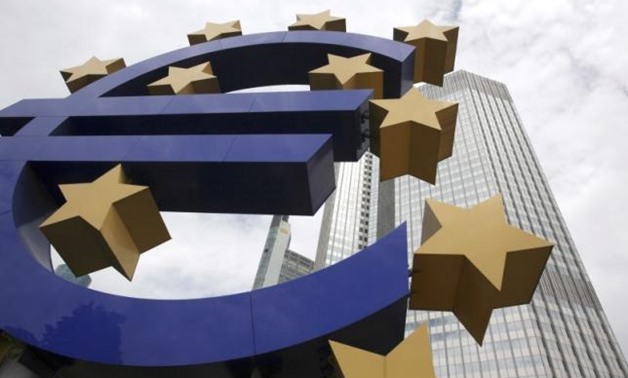
The Euro sign sculpture stands in front of the headquarters of the former European Central Bank
LONDON - 12 January 2018: German bond yields hit fresh five-month highs on Friday and the euro hit a three-year high as coalition progress in Germany added to a bond sell-off first triggered by the possibility of a European Central Bank rethink on policy messaging.
German Chancellor Angela Merkel's conservatives and the Social Democrats (SPD) agreed on Friday after all-night to a blueprint for formal coalition negotiations, party sources said.
The news that Europe's biggest economy could end political uncertainty after a September 2017 election delivered a hung parliament boosted the euro and pushed investors away from safe haven German bonds.
"We are seeing a bit of a downside on (German) Bunds on the back of the agreement for coalition talks," said Commerzbank strategist Michael Leister.
The yield on Germany's 10-year government bond rose as high as 0.54 percent in early trade, the highest since August.
It dropped again as the session wore on but was still close to five-month highs at 0.52 percent.
Meanwhile the euro climbed to a three-year high: the SPD are considered heavily pro-Europe, with leader Martin Schulz last year arguing for closer ties and calling for a "United States of Europe".
The rise in yields adds to a sell off that intensified on Thursday after minutes from the ECB's December meeting showed the bank could revisit its policy messaging in early 2018 and gradually adjust its language to reflect improved growth prospects. Analysts said the minutes were interpreted by markets as a sign that rate-setters may accelerate the timeline on winding down their 2.55 trillion euros bond-buying programme, the key plank of their stimulus policy for the past three years.
"Markets will stay nervous until (ECB president) Draghi provides his views on the aggressive repricing and euro appreciation two weeks from now," said Commerzbank strategists in a note.
Most core euro zone bond yields dropped 1-3 bps on Friday, but only after rising sharply earlier in the week.
France's 10-year government bond yield, as an example, was lower 3 bps at 0.85 percent, but only after having 8 bps from the start of the week. Later on Friday, the United States is expected to release its December inflation data, which the market will use to form its rate hike forecasts.
Global bonds markets have been rattled this week by possible central bank action, starting on Tuesday when the Bank of Japan trimmed its purchase of long-dated Japanese government bonds.
Comments
Leave a Comment